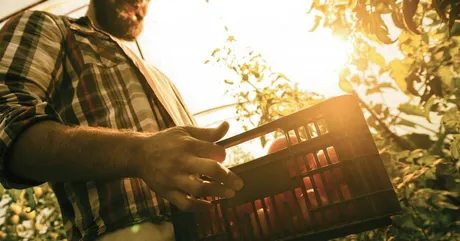The National Farmers’ Federation (NFF) says changes to existing visa programmes are a major step forward in more effectively meeting the farm sector’s chronic labour shortage.
“Prime Minister (Scott) Morrison has listened and is following through on his commitment to address agriculture’s workforce crisis,” NFF President Fiona Simson said. "The changes will make it easier for farmers to source and retain the workers they need."
From today (5 November 2018), the locations where subclass 462-visa holders can work in agriculture to qualify for a second year of stay in Australia will increase to include regional areas in NSW, Queensland, Victoria and Western Australia, while it will apply to all of Northern Territory, South Australia and Tasmania. Currently only those who work in Northern Australia are eligible.

Photo: Growcom press release
While, the period in which subclass 417 and 462 visa holders can stay with the same agricultural employer, will be increased from 6 to 12 months. There will also be the option of a third-year for subclass 417 and 462 visa holders who, after 1 July 2019, undertake 6-months of specified work in a specified regional area during their second year.
A statement on the Home Affairs website says the key focus is on providing farmers with immediate access to workers in key parts of regional Australia: "The changes aim to increase the number of Working Holiday Makers available for seasonal work needs. Employers will be able to retain trained and experienced employees doing agricultural (plant and animal cultivation) work for up to 12-months, rather than the previous 6-months. The availability of a third-year visa will attract working holiday makers to work for longer in regional Australia."
Another change is that the eligible age for subclass 417 visa applicants from Canada and Ireland will increase to 35, and there is no change is being made to the existing Northern Australia concessions.
AUSVEG has also welcomed changes to the Seasonal Worker Programme (SWP), which will also be modified to extend each work period to nine months and reduce out-of-pocket expenses for employers.
“Making it easier for growers to be a part of the SWP is a welcome improvement to a visa that’s already providing value to our growers and supporting our regional neighbours,” AUSVEG CEO James Whiteside said. “Backpackers are an established source of labour for Australian farmers, and allowing them to work for longer periods at a single farm will help our growers retain a more stable workforce throughout the year."
The NFF is also pleased with funding that will see an Industry Workforce Coordinator engaged for two years, and a further $9.9 million that will expand the scope and reach of the Fair Work Ombudsman.
"We also welcome a $1.5 million investment in ensuring the Fair Farms Initiative continues to be available to horticulture and other agriculture sectors," Ms Simson said. "The Fair Farms Initiative, aims to ensure that workers are treated fairly while they are employed on farm and in pack houses."
The Fair Farms Initiative is being delivered by Growcom, and Chief Advocate, Rachel Mackenzie says the peak industry body wants to give good growers the tools to differentiate themselves in the market place.
“The $1.5 million allocation of funding for the Fair Farms Initiative gives industry an opportunity to roll out a practical market recognition scheme that enables farm businesses to demonstrate that their employment practices comply with Australian laws and industry standards,” Ms Mackenzie said. “Growcom has long been a champion of treating workers fairly in the horticulture industry and continues to make significant steps in assisting growers to meet and demonstrate compliance with workplace legislation. We have a zero tolerance for worker exploitation."
While these measures were unanimously welcomed, the organisations reiterated support for a dedicated Agricultural Visa, emphasising the need for a holistic approach to solving the labour struggles facing the industry.
"We welcome these material changes and look forward to their implementation," Ms Simson said. "The NFF is pleased to have the Prime Minister’s support for a dedicated Agricultural Visa and we will continue to work with the Parliament to see the initiative become a reality."
Mr Whiteside adds: “The best worker on any farm is one who wants to be there, and these improvements to existing visa programs are a good step towards providing a more enthusiastic, engaged and reliable labour force for Australian agriculture,” said Mr Whiteside. “We’ll continue to work to get a dedicated Agricultural Visa that provides Australian growers with willing workers and ensures our produce reliably gets from the field to the supermarket shelf year in, year out."
For more information visit: www.homeaffairs.gov.au/News/Pages/changes-working-holiday-maker-visa
